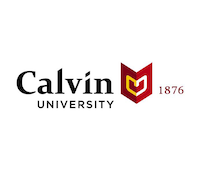Below is a summary of the abstract you submitted. Presenting author(s) is shown in bold.
If any changes need to be made, you can modify the abstract or change the authors.
You can also download a .docx version of this abstract.
If there are any problems, please email Dan at dar78@pitt.edu and he'll take care of them!
This abstract was last modified on March 19, 2024 at 11:59 p.m..

In the Fall of 2023, students from Calvin University isolated 23 siphoviridae bacteriophages from soil samples collected in the Grand Rapids, Michigan area using the host bacterium Rhodococcus equi NRRL B-16538. The 23 phages were very specific to the NRRL B-16538 strain with only seven of the phages being able to infect another R. equi strain (R. equi 7698). Six of the 23 phages were sequenced using the Illumina method: Madraxi, Tonitrus, Flodtrolde, CoffeeBean, Francesca, and Dorin. Tonitrus is a singleton phage and a third of its genes are orphams. When Tonitrus’ genome was sequenced, 10% of the reads were identical to REQ3, an unrelated Rhodococcus phage. Flodtrolde is a duplicate of Tonitrus but did not contain any REQ3 reads. It was also found that near the start of Tonitrus’ genome there are five genes seen in some cluster DR phages (Gordonia spp. hosts) that comprise a Thymidine Hyper Modification System which may protect against bacterial restriction enzymes. Madraxi is a CF cluster phage and 18 of its genes were orphams. Though yet to be annotated, phages Dorin and Francesca formed a new cluster (CG) and have longer genomes (~137,000 bp) than the other phages. Interestingly, sequencing of Francesca also yielded 10% of reads matching REQ3, indicating that REQ3 might be a prophage in our host. CoffeeBean belongs to the CR cluster, making it one of the only Rhodococcus phages in a group dominated by Gordonia phages. The seven Rhodococcus phages in the CR cluster have been isolated at Calvin University in the last 2 years.
